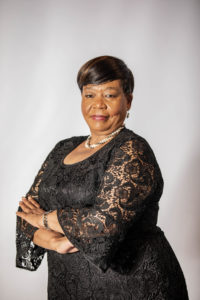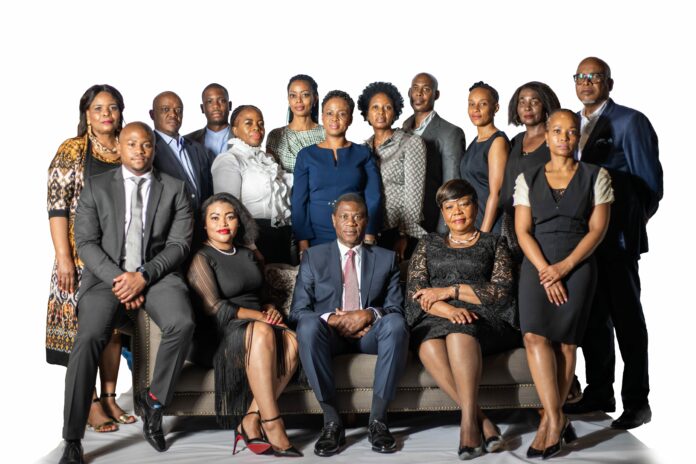Johannesburg – ANC Treasurer General, former Premier of Gauteng and former Minister of Arts and Culture, Paul Mashatile has launched the Manzi Mashatile Foundation, in honour of his late wife and to use her passion for education to empower communities. Mashatile will be the Patron of the Foundation.
“The Foundation is our way of advancing Manzi’s legacy as a caring, giving and compassionate person who valued education and the empowerment of her community” said Mashatile at the launch, which took place in Woodmead, Johannesburg.
Mashatile says he remembers his late wife as a mother, pillar of both their families and the community, a businesswoman-who sacrificed her own business career to focus on the family when Mashatile’s ANC and government commitments grew too demanding – a style icon who loved to travel and a religious woman.
Manzi Ellen Matlhodi Mashatile died in July this year after a long illness, shortly after Paul Mashatile’s mother also died.
Mashatile says Manzi’s love for education saw her instil the discipline not only in her children but to those of his resibling’s children who got to stay with them, and all went on to obtain tertiary education.
“This is what makes education one of the pillars of the foundation’s work” says Mashatile.
The Foundation will be governed by a board of trustees, who will be responsible for crafting and executing its strategy and programmes.
The board will be chaired by Advocate Lindiwe Michelle Maseko, a four-term member of the Gauteng Legislature and its first female speaker in 2009, as well as a member of the national parliament and trained diplomat, who worked with Mashatile in both the Gauteng ANC Provincial and National Executive Committees as well as the Gauteng Legislature.

She is joined by Paul Mashatile’s son, Thabiso, as the foundation‘s CEO.
They are assisted by Thabiso’s sister Palesa Nonkwelo, former ANC spokesperson Keith Khoza and businesswomen Tebogo Kukama and Hantsi Matseke, life coach Didi Mogashoa, long time Mashatile assistant Ephenia Lerutle and another family member, retired special needs teacher Fregitah Direko.
Thabiso Mashatile says the Foundation recognises that structural poverty and inequality persist in democratic South Africa. The Foundation would like to help complement government’s efforts in addressing poverty and help fill in gaps that the government or the private market cannot.
Although the Foundation’s work will initially focus on Alexandra, the place of Manzi’s birth, it will have a deliberate focus on people from the rural areas, as well as the youth, women, people with disabilities, the elderly as well as graduates and young professionals in the Arts and Culture industries. The Foundation will ultimately have a national footprint.
The Foundation aims to run a total of five programmes, which cover the full spectrum of education from Early Childhood Development right through primary and secondary schools to tertiary education and work placement.
The first programme is the adoption of the Emfundisweni Primary School, one of the oldest schools in Alexandra, which was first opened in 1952 and renovated a few times as a lower primary school to its current location along London Road, at 12th Avenue, where it has been since the 1980s.
The aim is to assist the school, which is a no-fee school, with its schooling and infrastructure needs, as well as assist learners with uniform and learning materials. The programme is expected to run over a five-year period.
Foundation CEO Thabiso Mashatile says the Foundation will now have to explore assisting the school to provide quality education in the face of Covid 19 pandemic, which this year disrupted contact learning and forced schools to provide online learning. “Covid 19 presented a unique challenge to under-resourced schools, we will have to think about how we help the schools to be ready for similar challenges in the future” says Mashatile.

The second programme is to give ten students bursaries for secondary education study. This is aimed at top-performing Grade 7 learners in no-fee schools who can then be channelled towards arts and culture high school education, with half of the students being females.
The third programme is to assist top performing Grade 12 learners in no-fee schools to access opportunities in tertiary education, also in arts and culture education. “We aim to ensure that half the assisted learners are female while a quarter are from rural background,” says the CEO Thabiso Mashatile. The bursary is envisaged to cover tuition, residence, textbooks and provide a stipend for basic living expenses.
The next leg of the Foundation’s programme is to assist graduates to obtain employment in the field of Arts and Culture through work readiness training and placement for employment, which would ideally be permanent.
The Patron Paul Mashatile says the Foundation will work through partnerships “This will be in partnership with existing programmes, like-minded initiatives as well as those identified and initiated by the Foundation.” He said.

Sunday World



